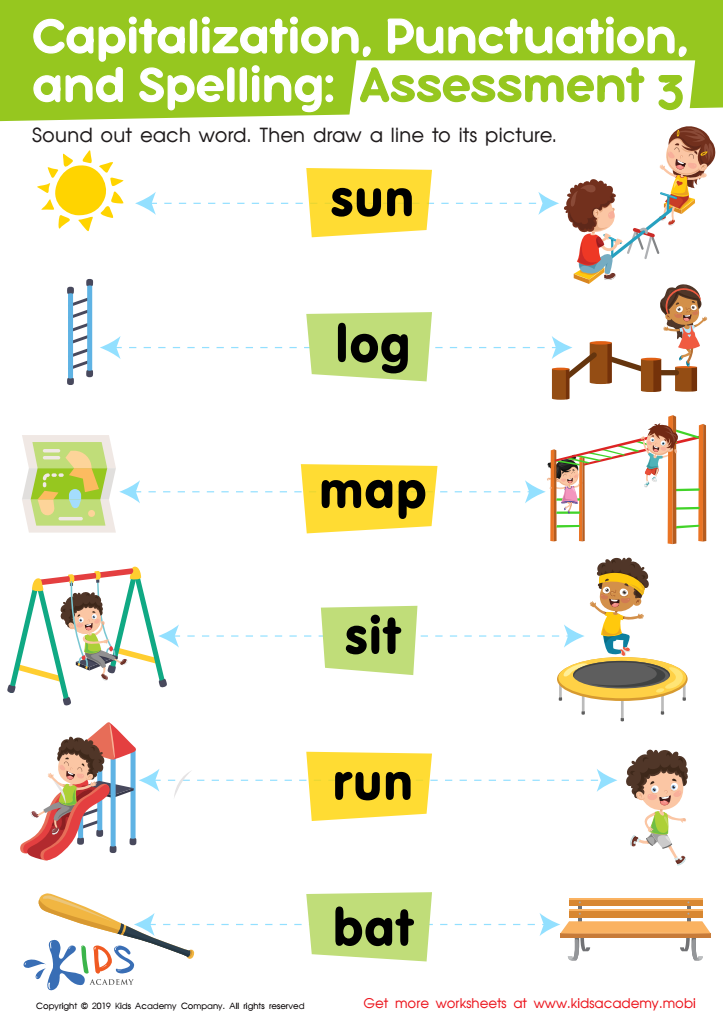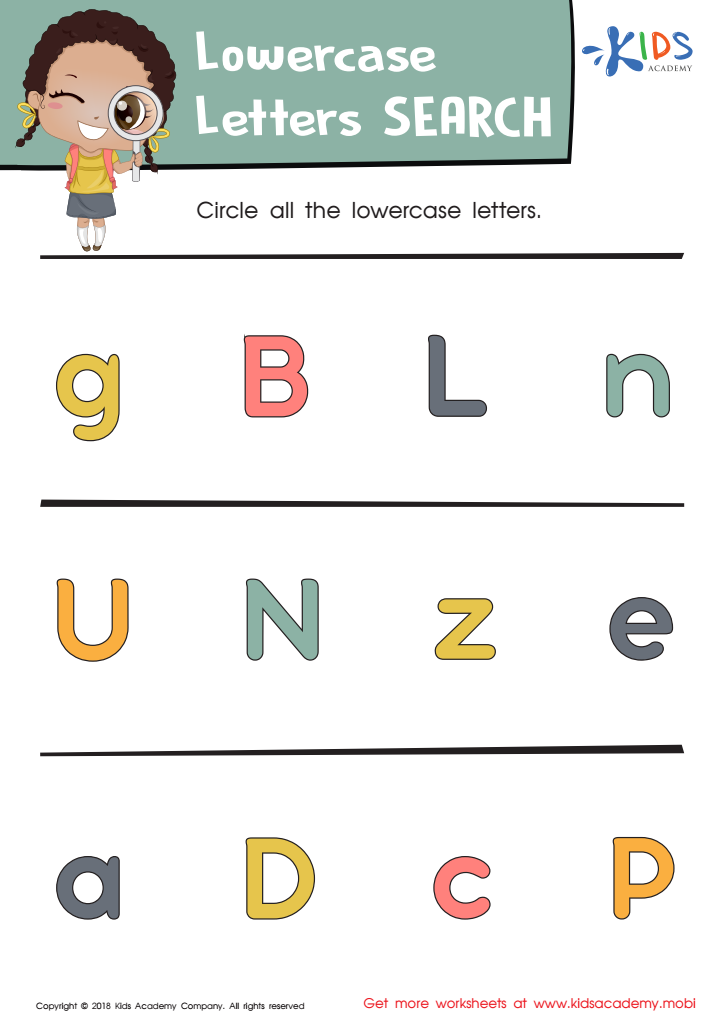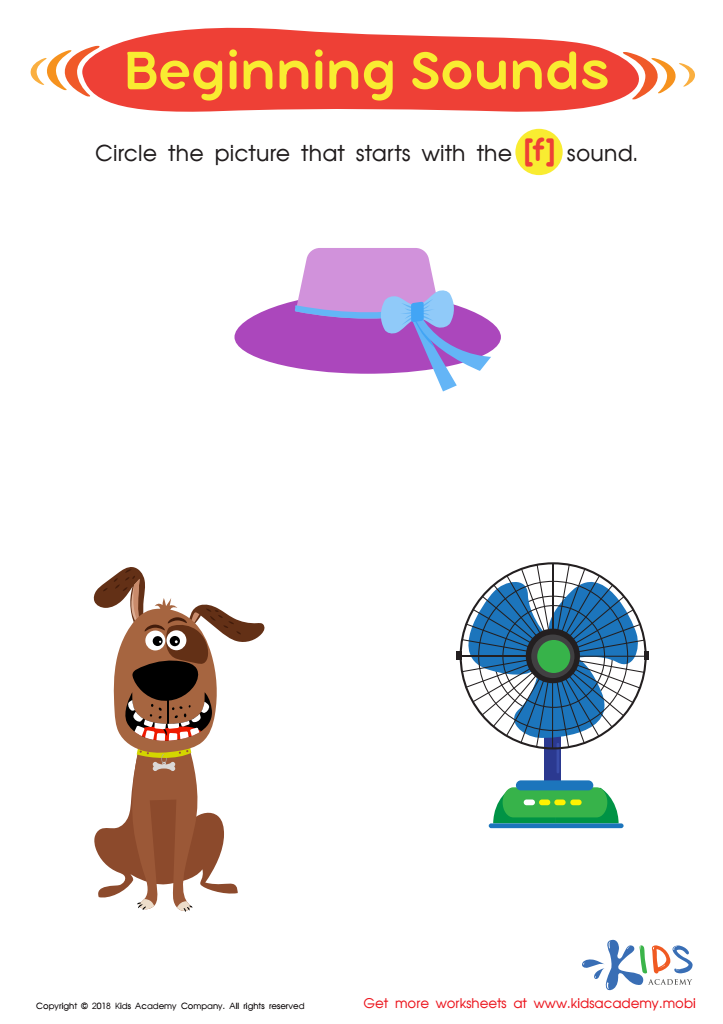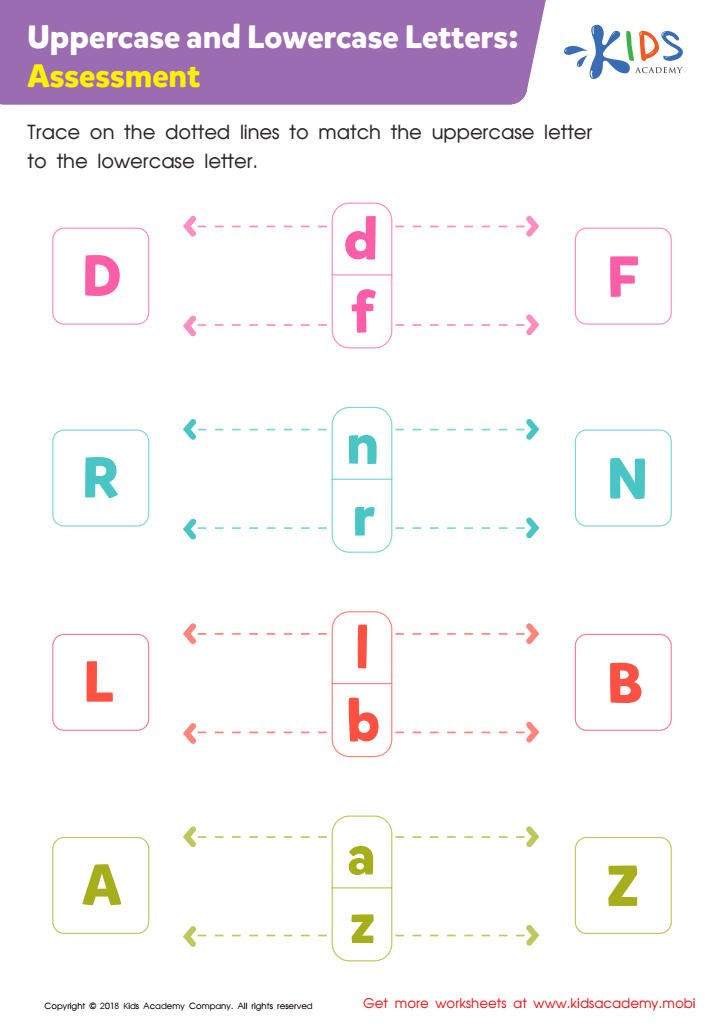Easy Alphabet worksheets activities for Ages 6-9
5 filtered results
-
From - To
Discover our collection of easy alphabet worksheets designed specifically for children ages 6-9! Our engaging activities promote letter recognition, phonics, and writing skills in a fun and interactive way. With colorful designs and various exercises, kids can enjoy tracing letters, completing fun alphabet games, and much more. These worksheets support early literacy development, making learning the alphabet enjoyable and effective. Whether in the classroom or at home, these resources are perfect for reinforcing foundational reading and writing skills. Explore our printable worksheets today and watch your child flourish as they embark on their alphabet adventure!


Capitalization. Punctuation. Spelling. Assessment 3 Worksheet


Phonics and Word Recognition: Assessment 1 Worksheet


Lowercase Letters Search: Assessment Worksheet


Beginning Sounds Assessment Printable


Uppercase and Lowercase Letters: Assessment Worksheet
Parents and teachers should prioritize Easy Alphabet activities for children ages 6-9 as they lay a crucial foundation for literacy, language development, and cognitive skills. At this age, children are typically transitioning from learning letters to reading and writing proficiently. Engaging in fun and accessible alphabet activities can ignite interest and excitement in learning.
These activities enhance letter recognition, phonetic awareness, and vocabulary acquisition in an enjoyable way. Simple games, such as letter scavenger hunts, story creation, or alphabet puzzles, foster critical thinking and creativity while satisfying young learners' need for active participation. Moreover, they can help build fine motor skills through writing and crafting tasks.
Additionally, incorporating these activities into daily routines promotes higher retention and helps children connect the alphabet to the world around them. Developing positive associations with letters can create a love for reading that lasts a lifetime. Collaborative activities also foster social skills, allowing children to work together and share their ideas in a supportive environment.
Ultimately, Easy Alphabet activities not only help children master essential skills but also create joyful, memorable learning experiences—empowering them for future academic success.

 Assign to My Students
Assign to My Students





















